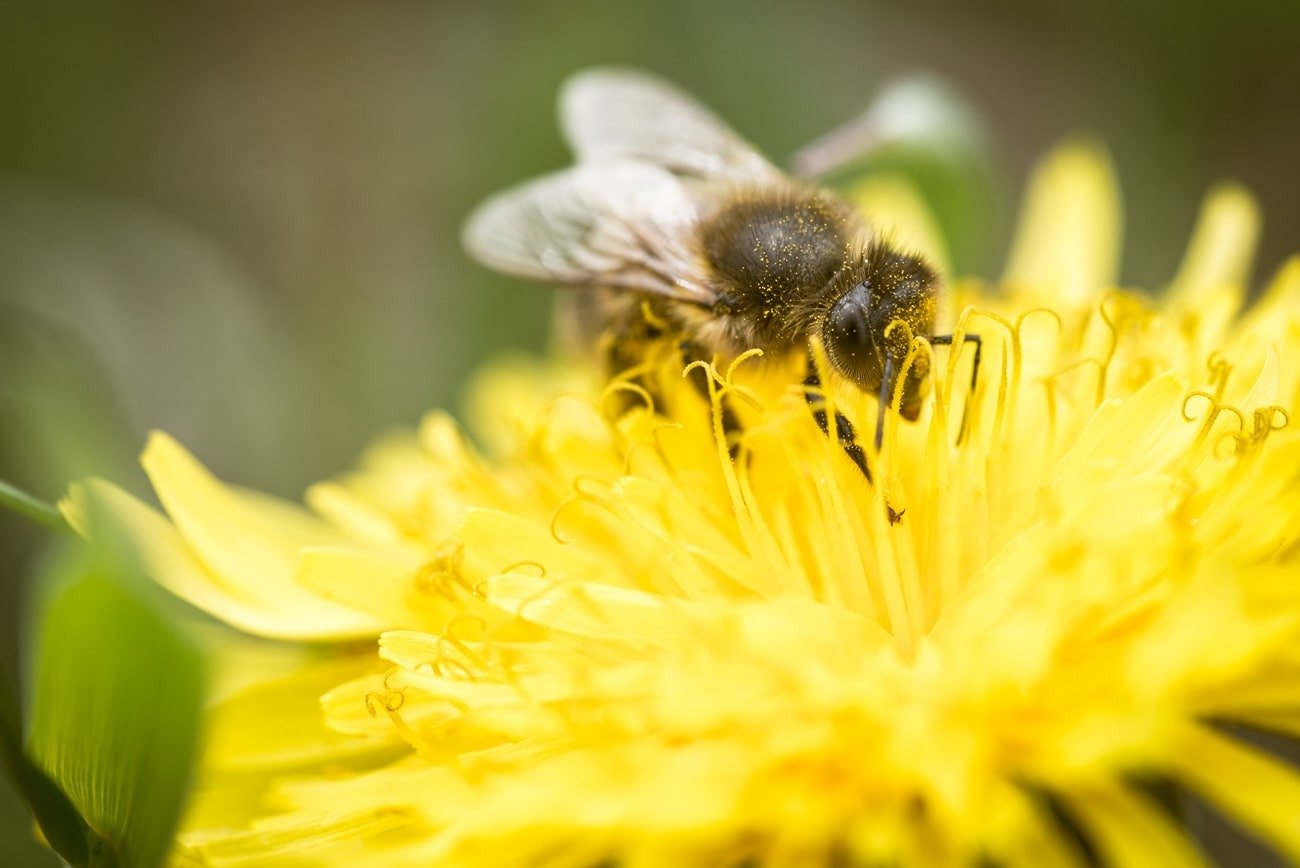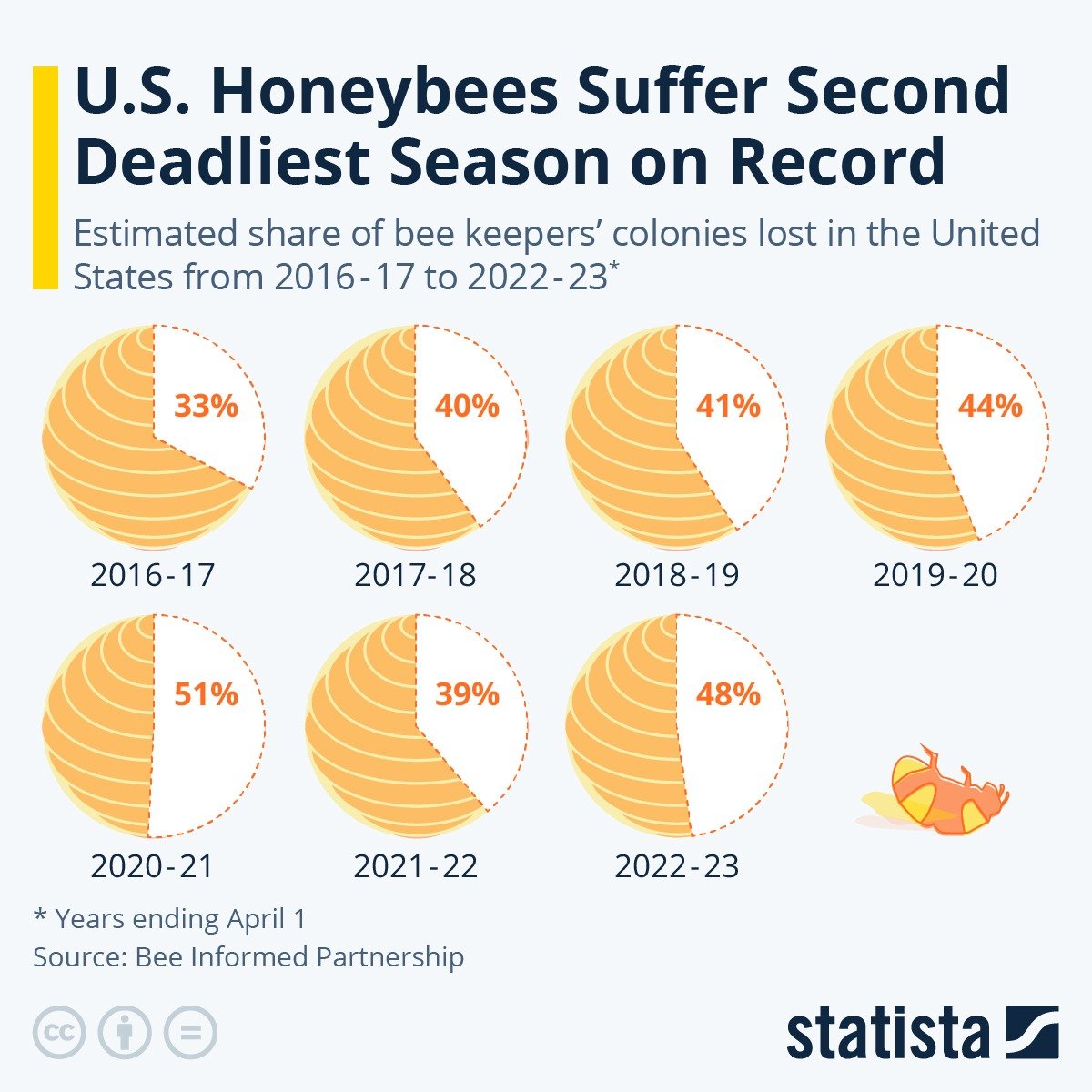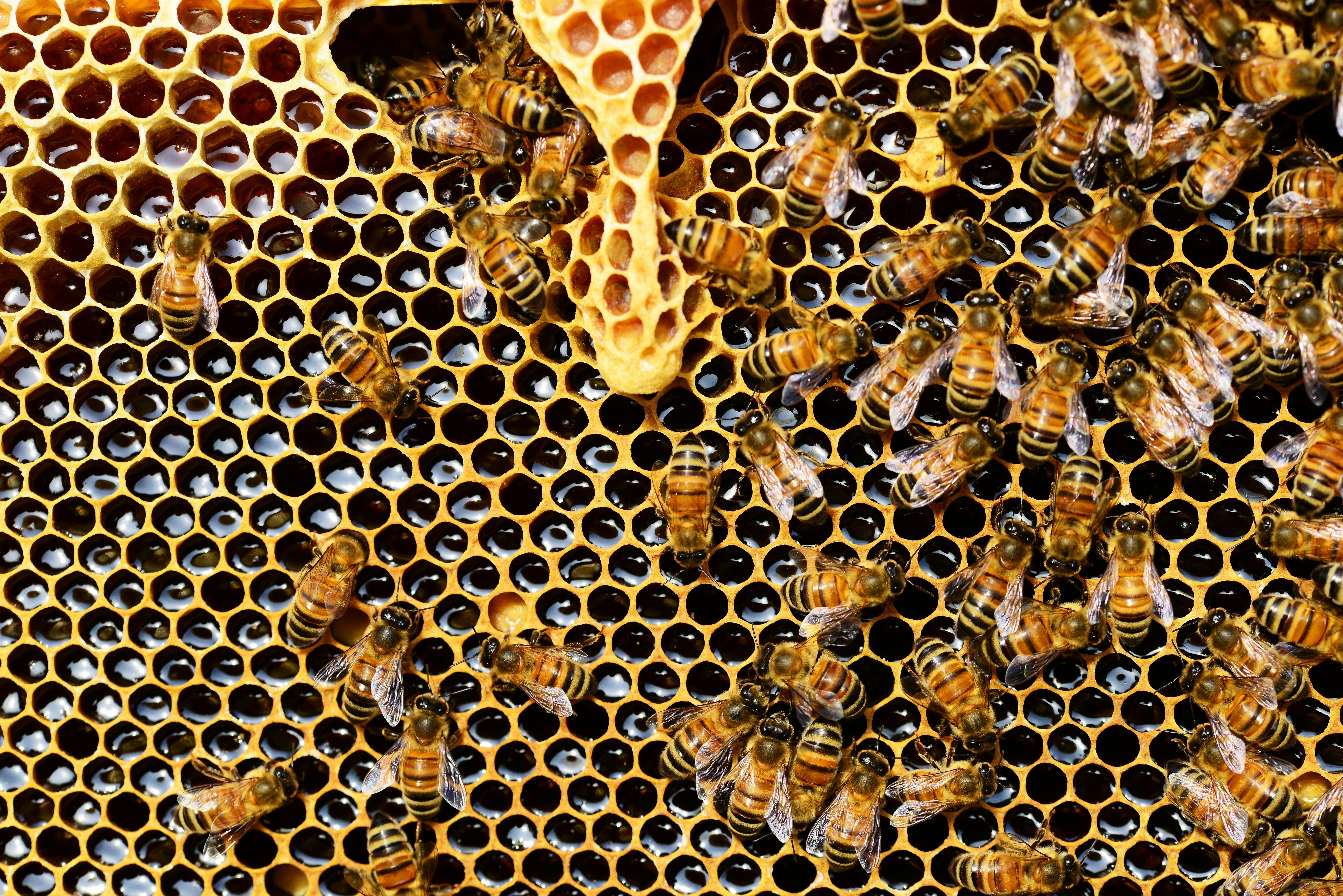New "Superfood" Could Save Honey Bee Colonies
Language
Reading Level
Listen to Article
Alignment

Honey bees are vital to our food supply. They pollinate the flowers of many fruits and vegetables, supporting about 35 percent of the world's crops. In the US alone, the tiny insects help produce $15 billion worth of food each year.
"We rely on honey bees to pollinate one in three bites of our food," says Danielle Downey of the non-profit Project Apis m.
But the species is in trouble. Between May 2024 and April 2025, the US lost more than half of its managed bee colonies. This is the highest annual loss since record-keeping began in 2010. The situation is just as dire in other parts of the world. Studies show that many countries are experiencing an average colony loss of around 30 percent every year.

One major challenge is poor nutrition. Bees need a variety of flowering plants to obtain nutrients, like specific sterols, found in pollen. But these plants are becoming scarce. Habitat loss and farming with fields of just one crop have left bees with fewer flowers to visit. Additionally, warming temperatures are causing many plants to bloom earlier or later than usual. If bees are not out foraging when the flowers bloom, they can miss their main sources of food.
To address this problem, researchers at Oxford University in England have developed a new "superfood." It contains six essential sterols found in pollen, providing bees with the nutrients they need. The researchers conducted a three-month trial to test the supplement. Some colonies were given the supplement, while the control group received standard food. The results were striking. Colonies on the enriched diet produced up to 15 times more adult bees than those on the regular diet. The supplemented bees were also healthier than their counterparts in the control group.

"Our technology lets beekeepers feed bees when pollen isn’t available," says study leader Prof. Wright. "With the right nutrients, colonies stay healthier and stronger for longer."
The team published their findings in the journal Nature on August 20, 2025. They hope to make the superfood available to beekeepers and farmers by 2026. Beyond honey bees, it could also help other pollinators, protecting food supplies worldwide.
Resources: Smithsonianmag.com, NPR.org, BBC.com